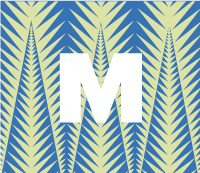At age nineteen, I took a year off of college and climbed full time. It was great, for most of the time. Actually, it was great when I was around other full-time climbers. When I was around people in real life, however, it was horrifically uncomfortable.
Tioga Pass, May, 1997. I’m sitting at the family-style dinner table with my boyfriend and six strangers. What’s your name? We all asked each other. What do you do?
Around the table we went: there were teachers, engineers, artists and even one aviation safety specialist. When it was his turn, my boyfriend said, proudly, mountain guide. When it was my turn, I asked for more mashed potatoes.
That was almost twelve years ago, but I can still remember wanting, equally, to tell everyone to shove it, and to lie and say I was a mountain guide, too.
Back then I thought being a guide was better than being a brain surgeon. I so desperately wanted that identity that I would I get angry at my boyfriend for already being one.
Now I know that what I really wanted was a purposeful statement of identity.
My sister is a full time mom with a Masters in Public Health. A year ago, when her kids were two and four, she decided to get feisty at dinner parties. When people asked her what she did, she answered them with statements like I am a passionate runner, I seek out the best tofu, I enjoy learning about food anthropology. “Why is it,” she said to me at the time, “that people can’t talk about what they are interested in? Would it be that hard?”
As humans, we want to organize ourselves and others into categories. One statement—I am an accountant, says so much. Or at least it does so in our brains. We immediately assign a host of personality traits and choices to that statement. If, on the other side of it, we try to skirt the question, or even worse, launch into a five minute diatribe about our exasperation with the continued quantification and qualification of others vis a vis their profession, we will likely be labeled “that freak at the party the other night.”
I no longer want to be the mountain guide in every conversation. But I would be lying if I said I don’t pull out that identity card when I know it will matter. Other times I pick a different profession. I seem to have four of them, these days. Maybe that makes me lucky. But it doesn’t solve the issue. Ben, writing into my last post, summed it up with this comment: Does who I am match what I do?
We are told in modern spirituality that true happiness comes from being at peace with ourselves. Sure. Fine. But we are constantly describing ourselves to others. Maybe that is the constant trick of ego. Maybe I’d be a better person if I could be blissfully zen about it all. But I’m not. The questions provide times to claim ourselves, to reinvent ourselves, to connect with others. Or that’s what they should do in the best of contexts. But maybe to do that, we need a follow up question.
Last week I was at an impromptu dinner with a group of people, half of whom I did not know. I turned to the woman next to me. What’s your name? I asked. What do you do? And then I stopped her mid- answer. “No, wait,” I said, “Surprise me.”
She arched her eyebrow. I could feel myself becoming that freaky woman.
“Ok,” I said. “Tell me what you do. But then tell me more.”
